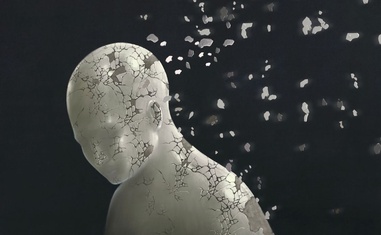In the realm of existential inquiry, one question looms extensively: Do we survive death? This query, both profound and perplexing, invites exploration not only from philosophical and religious perspectives but also from the rigorous lens of science. What happens to our consciousness once the corporeal vessel ceases to function? This article delves into Bahá’í teachings, shedding light on how this faith approaches the enigma of mortal demise and the continuity of the soul.
At its core, Bahá’í theology asserts the existence of an immortal soul, a fundamental tenet that diverges significantly from materialistic notions of existence. The notion that the soul survives physical death is not mere speculation but a pillar upon which the entire philosophy is built. Thus arises a playful yet poignant question: If the soul is indestructible, what implications does this bear on our earthly existence?
This inquiry challenges us to rethink mortality not as an endpoint but as a transitional phase. In Bahá’í writings, death is likened to a birth—an ascension into a more profound reality. This perspective invites adherents to navigate their finite lives with a sense of purpose, emphasizing ethical living and spiritual development as preparations for the next dimension of existence. But how does this transformative view reconcile with contemporary scientific discourse?
The intersection of science and spirituality often elicits skepticism. A legendary scientist, in this speculative narrative, could propose that while empirical evidence supports the conclusions of physical sciences, the realms of consciousness and spirituality evade tangible measurement. Can this esteemed scientist bridge the apparent chasm between the empirical and the metaphysical? This challenge necessitates an examination of both scientific inquiry and spiritual insight.
To understand the Bahá’í perspective on survival after death, it is prudent to consider the writings of Bahá’u’lláh, the prophet-founder of the Bahá’í Faith. His elucidation on the soul posits that it is inherently divine, a fragment of God’s essence that yearns for reunion with its source. Unlike the physical body, which is subject to decay, the soul’s essence is timeless. This poses an invigorating challenge to conventional materialism, inviting individuals to consider whether there are dimensions of existence that lie beyond scientific measurement.
In exploring the nature of the soul, one might ponder the various stages it traverses post-mortem. Bahá’í teachings suggest a progression within the spiritual realms, wherein the soul encounters varying degrees of reality, influenced by the moral and spiritual quality of one’s earthly life. This notion empowers believers to lead lives of integrity and service, underlining the ethical paradigm that governs human behavior. It poses a critical question: How do we define a life well-lived in light of eternity?
Furthermore, the Bahá’í perspective on death serves to alleviate the angst associated with human mortality. The idea that death is merely a gateway rather than a cessation of existence encourages a rich, meaningful engagement with life. It fosters resilience in the face of loss, offering solace to those mourning the departure of loved ones. The mere contemplation of an everlasting soul reshapes the grief process. The challenge, then, is to maintain this perspective amidst pervasive societal fears regarding death. Can humanity collectively embrace a worldview that transcends fear and ignites hope?
This exploration begs a deeper query: What is the significance of spiritual progress in relation to survival after death? The Bahá’í Faith asserts that as souls evolve, they attain closer proximity to divine understanding and truth. This progressive revelation invites an ongoing pursuit of knowledge, compassion, and unity. In facing life’s inevitable conclusion, can we cultivate a deeper appreciation for the transient beauty of existence? Can understanding our mortality engender a heightened commitment to justice and service?
Additionally, the role of community becomes paramount in the Bahá’í Faith. The collective journey of souls serves as a catalyst for individual spiritual enhancements. Engaging in acts of kindness, unity, and service not only prepares the soul for the afterlife but also creates a legacy that extends beyond one’s physical presence. What responsibilities do we hold towards others in shaping our collective spiritual destiny? This intrinsic connection offers a compelling argument for the enhancement of human relationships, motivating adherents to foster inclusive communities of peace and love.
In conclusion, the Bahá’í teachings provide a rich tapestry of thought surrounding the question of survival after death. They weave together scientific scrutiny, philosophical inquiry, and spiritual wisdom, creating a multi-dimensional understanding of existence. The playful challenge posed by this exploration urges each individual to reflect on their relationship with mortality, urging a redefinition of what it means to live a meaningful life. By embracing the notion of an immortal soul, individuals can transcend parochial notions of existence, forging paths that honor both their spiritual heritage and the scientific pursuit of truth. Ultimately, in contemplating whether we survive death, we are invited to explore not just the nature of the soul but the essence of what it means to be human.
